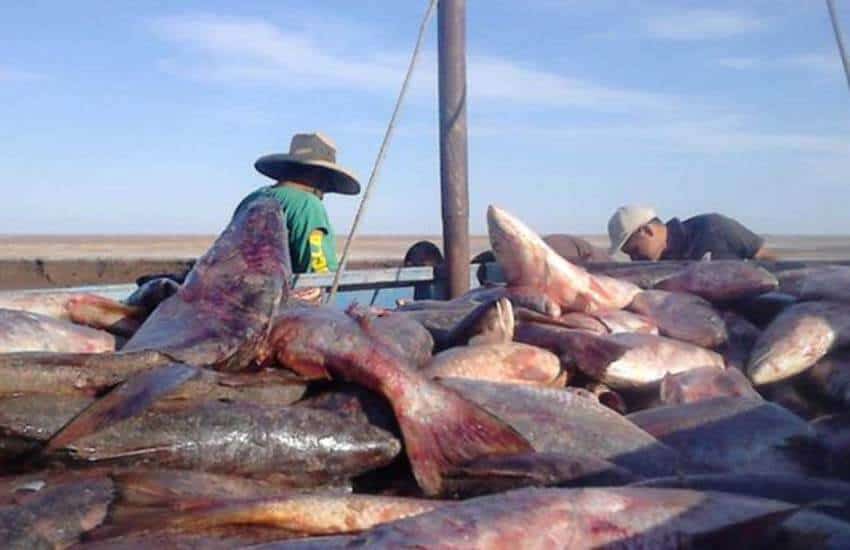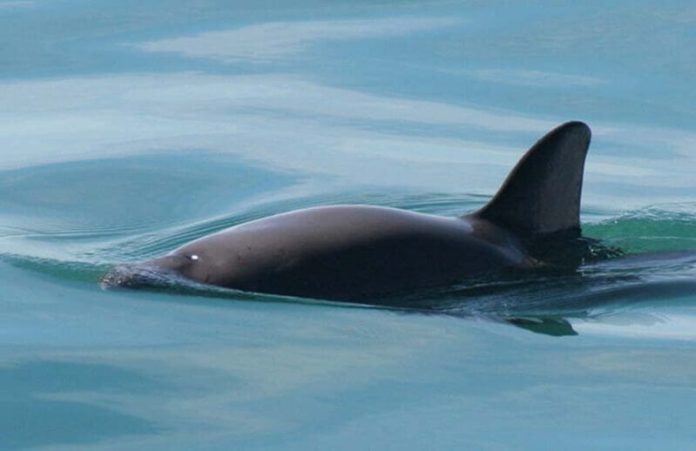A new petition has urged the United States to initiate a consultation with Mexico on its failure to protect the world’s most endangered porpoise, the vaquita marina.
Endemic to the Gulf of California, the vaquita is an estimated 10 individuals away from extinction, a number so critically low that it is considered the most threatened marine mammal on the planet. Yet the national government continues to fail in its regulation and penalization of illegal fishing in the area, leading to mounting international pressure for Mexico to be held to account.
Conservation groups, including the Center for Biological Diversity, submitted the petition to the Commission of the United States-Mexico-Canada Agreement (UMSCA) Secretariat requesting enforcement against Mexico for its failure to execute fishing and trading laws on August 11. Further, the petition asks the Commission on Environmental Cooperation (CEC) to investigate and develop a “factual record” on Mexico’s failures, and for the U.S. Trade Representative’s environment committee to initiate a consultation.
This consultation is the first step in the USMCA’s formal enforcement process and could lead to sanctions for the Mexican government.
Historically, the government of Mexico has failed to implement sanctions against illegal fishing in the vaquita’s habitat in the upper Gulf of California, where observers documented more than 1,100 unlawful vessels in November 2020 alone.
Moreover, in July of this year, the Mexican government passed a set of complicated new rules which essentially eased enforcement in the “zero tolerance area” (ZTA), designated as a protected zone to try to halt the vaquita’s precipitous decline.
The area lies within the Gulf of California, an area of high natural biodiversity that boasts a third of the world’s cetacean species, such as whales, dolphins and porpoises, and includes the remainder of the vaquita population. The small, elusive creatures are often killed as bycatch in gillnet fishing for the totoaba fish, which, like the small porpoise, is also critically endangered and whose swim bladder is illegally traded at prodigiously high prices overseas.
Despite its name, the reality of the ZTA is far from what it purports to be, says Alejandro Olivera, a senior scientist with the Center for Biological Diversity, a nonprofit conservation organization.
“The Mexican government’s plan is silly,” he said.
Officials will be wasting precious time counting vessels within an area where zero fishing is supposed to be tolerated, he explained. “They won’t even bother fully enforcing the fishing ban until 50 illegal boats are detected in this small area.”
Yvette Griffiths of the environmental nonprofit Ninth Wave Global agrees:
“The bottom line here is that there is no genuine political will to act because there are too many other vested interests at play, by which I mean economic interests. So what we essentially have is the authorities paying lip service to conservation while in fact not taking it remotely seriously.”

The petition filed with the USMCA Secretariat this month stresses the urgency of putting real pressure on the government to act. With only 10 vaquitas likely remaining anywhere in the world, the time to take action is fast running out.
Yet, in spite of years of regulations, talks and promises by the Mexican government to protect the small porpoise, officials have consistently turned a blind eye to illegal fishing in the Gulf of California.
An absence of government presence, however, does not equate to an absence of power structures altogether; endemic to Latin America are vacuums of power — caused largely by government weakness or neglect — into which external power blocs can step.
In this instance, the traffickers, specializing in the poaching and distribution of the totoaba swim bladder, are diversifications of the cartels that control huge territories across the Baja Peninsula. Using their existing influence and networks to cash in on the lucrative totoaba maw trade, transnational networks ship what is known as the “cocaine of the sea” to China, where they sell for prohibitively high prices.
And given that groups on operations to try and stop the use of illegal gillnets in the area have received anonymous death threats while patrolling the waters of the gulf, it is little wonder that the already scant government patrols are rarely keen to go up against these entrenched interests who stand to gain from continued illegal fishing.
The Mexican government needs both encouragement — to recognize the importance of enforcing sanctions against the illegal fishing which threatens the vaquita — and support in order to make headway into the entangled power structures currently at play in the gulf.
With this in mind, the conservation groups behind the petition say that the need for the intervention of the international community is more pressing than ever.
“Action must be immediate, and it must be radical,” says Griffiths. “The protection of what little remains of the vaquita population is about conserving the biodiversity of the entire ecosystem of the upper Gulf of California. Government negligence means that the vaquita has little chance of survival, but the actions taken now will set precedent for the future.”
The question now is this: will international policies continue to sleepwalk down the same roads in the future, or can alliances such as the USMCA establish a firm and functioning system of intervention to act as potential mitigation for future species and biodiversity loss?
Shannon Collins is an environment correspondent at Ninth Wave Global, an environmental organization and think tank. She writes from Campeche.
